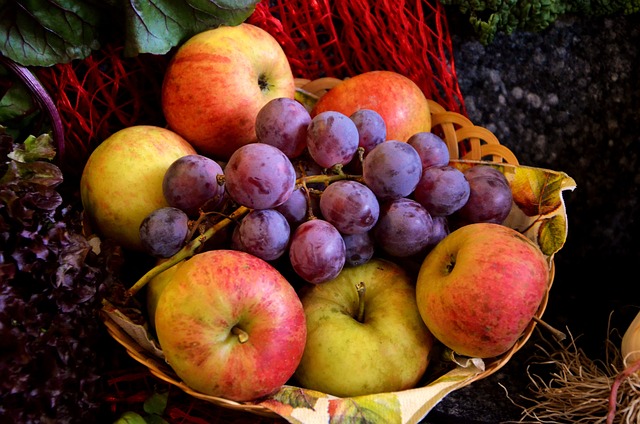Thank you for visiting. We trust that you have enjoyed reading our articles.
Finding Good Fruit In Our Pain

“But He said to me, ‘My grace is sufficient for you, for my power is made perfect in weakness.’ Therefore I will boast all the more gladly about my weaknesses, so that Christ’s power may rest on me. That is why, for Christ’s sake, I delight in weaknesses, in insults, in hardships, in persecutions, in difficulties. For when I am weak, then I am strong” (2 Corinthians 12:9-11 NIV).
Is there anything more difficult to deal with in our human condition than pain? Physical pain can be horrible and so intense that the strongest Christian cries out, “Abba! Father!” to be Healed. Mental pain from the loss of a loved one can crush our spirit. All pain is raw and real.
In our times of pain, it is natural to ask, “Where is God?” I certainly have asked this question before and suspect that I am not alone. The truth is that God shares the pain of every single person. When we are hurting, He isn’t distant. He is aware of our pain. He cares for us during our pain. In my times of pain, I think of how Jesus reacted when He saw the pain and tears on the faces of Mary and Martha because Lazarus had recently died. Jesus, the God of heaven and earth, stopped and cried with them. He embraced their pain and I believe that His Spirit does that today for those that chose to turn toward Him.
Our pain presents us with an opportunity to “yoke up” to God by following the invitation of Matthew 11:28-30. “Come to me, all you who are weary and burdened, and I will give you rest. Take my yoke upon you and learn from me, for I am gentle and humble in heart, and you will find rest for your souls. For my yoke is easy and my burden is light.”
Our pain also presents us with the opportunity to look for someone to blame and seek revenge. Perhaps you were the victim of an accident caused by a drunk driver. The drunk driver may in turn blame the bar tender that over served him or his boss for not respecting him which “caused” him to drive while intoxicated. Sometimes we are an innocent victim, but other times the pain we are experiencing is a direct result of some very poor choices. The most important thing we can ever do is an honest self-examination, but yet the most difficult thing we can ever do is an honest self-examination.
Pain is inevitable in this life. Perhaps pain is God’s way of scratching the surface to reveal what is underneath. I have good friends that have experienced tremendous pain. They have been scratched deep, but they never lost their joy and the Fruits of Spirit were always manifested in their words and actions. I have seen others that when gently scratched, a dark underbelly is revealed that indicates mental instability and/or a poor understanding of Scripture.
I wonder if for some their response to pain is a learned behavior. For example, if a parent modelled for a child that pain requires “an eye for an eye.” They may see pain as an opportunity to play the victim, seek revenge, and engage in character attacks of their perceived offender. So, as an adult maybe they are following the same behavior as modelled to them by their parent(s). Perhaps Numbers 14:18 was written for these situations. “The Lord is slow to anger and abounding in steadfast love, forgiving iniquity and transgression, but he will by no means clear the guilty, visiting the iniquity of the fathers on the children, to the third and the fourth generation” (emphasis added).
Some people are particularly adept to play the victim and solicit sympathy in times of pain. This can be done overtly by public slander and defamation or covertly by “planting seeds of doubt” in an attempt to tarnish the reputation of their perceived offender and to further aid in their effort to win the “battle of public opinion.” These seeds never find fertile ground, never yield good fruit but do speak volumes about the character of the sower.
Jesus experienced pain so we have confidence that when we pray in our times of pain that He understands our pain. Hebrews 4:15 says: “Jesus understands every weakness of ours, because he was tempted in every way that we are.”
He understands emotional pain, abandonment, loneliness, criticism, discrimination, rejection, and betrayal. Jesus also understands physical pain. Can you imagine not only the pain of the crucifixion but also carrying the sin of every evil act done throughout history? It is important to remember that in His pain and without sin He descended into hell but His victory over sin and death allows us to be presented as pure and blameless to the Father.
The Holy Spirit also shares our pain. When our pain is so great that all we can speak are groans, the Spirit intercedes on our behalf. Romans 8:26 reads, “In the same way, the Spirit helps us in our weakness. We do not know what we ought to pray for, but the Spirit himself intercedes for us through wordless groans.”
God shares our pain because He created us. The Bible says, “The one who formed their hearts understands everything they do” (Psalm 33:15). In other words, God is never shocked by your emotions or your thoughts.
There are many Psalms that begin in a similar fashion as Psalm 130:1. “Lord, I cry out to you out of the depths of my despair!” He not only welcomes our cries of pain, but He understands and offers comfort, if we plant our seeds on fertile ground rather than sowing seeds of doubt. If you are in pain, remember Psalm 34:18: “The LORD is near to the brokenhearted and saves the crushed in spirit.”
You’re never closer to God than when you have a broken heart. This is the time to plant seeds in accordance with Matthew 13:23. “But the seed falling on good soil refers to someone who hears the word and understands it. This is the one who produces a crop, yielding a hundred, sixty or thirty times what was sown.” What sort of seeds will you plant during your pain? Choose wisely because future generations are watching and your actions can have implications for three and four generations.
Prayer: Dear God, Thank you for the invitation to share our pain. Help us to turn to you in times of pain and to plant seeds that bring honor and glory to you. Help us to resist the temptation of the flesh to plant seeds of doubt and seek revenge. Amen.
Meet the Author
Todd Shupe is a Men’s Ministry Specialist through the General Commission of United Methodist Men and is in training to be a Certified Lay Minister through the Louisiana Conference of the United Methodist Church. He currently serves as the President of the Baton Rouge District of United Methodist Men and is a Board Member for Gulf South Men and serves on the Action Team for The Kingdom Group. He is a volunteer for the Walk to Emmaus, Grace Camp, and Iron Sharpens Iron. Todd resides in Baton Rouge, Louisiana.
We welcome your comments below.
Liked this post?
Read more below or search for more topics...
-
A Man’s Role in the Family and in the Church
A MAN’S ROLE IN THE FAMILY AND IN THE CHURCH A man must model genuine godly masculine behavior to his children so that they will grow up as godly people and seek godly partners for marriage. That was part of the message from Retired U.S. Army Lt. Gen. Jerry Boykin at the September Man Up men’s ministry meeting at Greenwell Springs Baptist Church. More than 175 men attended. Interim Senior Pastor Tony Perkins says the men’s ministry program had become less active in recent years. His father, Richard Perkins, had to vacate his position as director of men’s ministries in 2015 due... -
Leaving A Truly Lasting Legacy
Leaving A Truly Lasting Legacy “Train up a child in the way he should go, and when he is old he will not depart from it” (Proverbs 22:6 NIV). I think most of us are interested in leaving behind a “legacy.” I see this “legacy” term used in many applications. Non-profit religious and secular organizations often court donors to donate money to establish a “legacy.” This concept of having something, particularly something intrinsically good, that lives on after we are forever healed is appealing to most men. Your legacy is not contingent on the amount of money that you donate to any organization,... -
Tell Yourself The Truth
Tell Yourself The Truth “Those who are dominated by the sinful nature think about sinful things, but those who are controlled by the Holy Spirit think about things that please the Spirit” (Romans 8:5 NLT). If you were raised in a Christian home, you were surely taught the importance of honesty and always telling the truth. I feel that honesty and respect go hand in hand. You are not respecting someone if you are not telling them the truth. It is sad that we often fail to extend the same courtesy to ourselves that we extend to others. When we believe negative thoughts...



